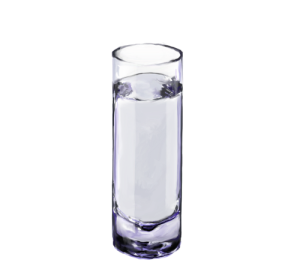Are you a fitness enthusiast or a dedicated athlete who has suddenly been sidelined by a nagging, persistent pain in your calf and ankle? That sharp or aching sensation that flares up during or after activity could be the result of Achilles tendonitis. The Achilles...
We’ve all seen soccer players sidelined by common but painful injuries like ankle sprains, knee ligament tears, and muscle strains. The combination of running, sudden stops, quick cuts, and potential physical contact makes the body, particularly the lower extremities,...
Spinal cord injuries are among the most serious and life-altering injuries a person can sustain. The spinal cord, a complex bundle of nerves, is the primary pathway for communication between the brain and the rest of the body. When it’s damaged, a patient could be...
Diet Before Shoulder Surgery

Getting ready for any major surgery involves some worry and the need to make some advanced preparations. One of the biggest preparations includes adjusting your diet. The right diet before surgery can make your recovery easier.
Nutrition Counts
A healthy, nutritious diet is important at any stage of life. However, a highly nutritious diet is even more important before surgery. Your body needs vitamins and minerals to promote quick healing. An adequate amount of protein in your diet will also help the muscles to grow back stronger after surgery. Make sure you also include a good amount of calcium-rich foods, like dairy products, seafood and leafy greens; this will help your bones heal.
Avoid Crash Diets
Right before surgery is not the time to go on any crash diets to try to lose weight. Crash diets are generally low in calories, which means that it is difficult to get all the nutrients your diet needs from food sources alone. Crash diets are not nutritionally balanced enough to create a healthy state for your body when you are recovering from shoulder surgery.
Amp up the Fiber
It is also really important to increase the amount of fiber in your diet before surgery. Anesthesia and pain medications used during and immediately after surgery have an unfortunate side effect of causing constipation, which can make your recovery period much more uncomfortable. If you consume enough fiber before surgery, it can decrease the negative effects of post-surgical constipation.
Lower Fat Intake
A recent study by Brigham and Women’s Hospital found that a lower-fat diet in the days leading up to surgery can actually boost your recovery process. The study found that lower fat intake before surgery could reduce the risk of inflammation and surgical infections.
Drink Enough Water
Drinking an adequate amount of water during the days leading up to surgery can help you have an easier recovery. In addition to reducing constipation from the anesthesia and post-surgical pain medication, drinking enough water can prevent post-operative dehydration. Adequate hydration also makes it easier for hospital staff to insert an intravenous line.
Diet the Day of Surgery
Your doctor or doctor’s representatives will have guidelines for you to follow regarding the dietary restrictions immediately leading up to the day of the surgery. In general, you will be required to avoid eating any food or drinking any liquids for several hours before the surgery. Avoiding food and drinks before surgery can protect you from having dangerous complications during the procedure, especially resulting from the anesthesia. Following these easy dieting tips prior and post surgery will immensely ease your road to recovery.


